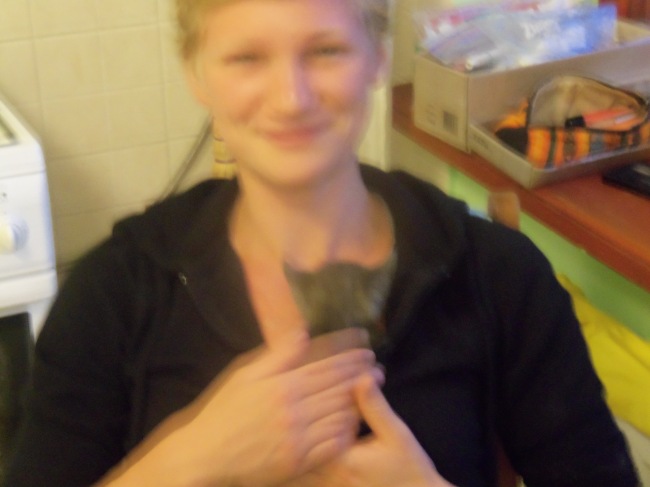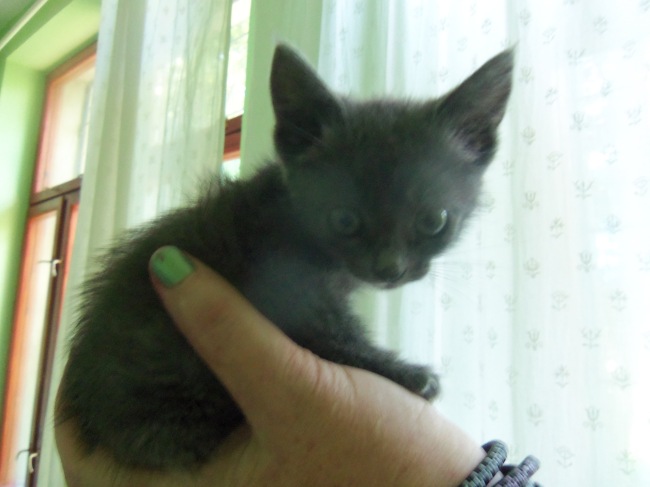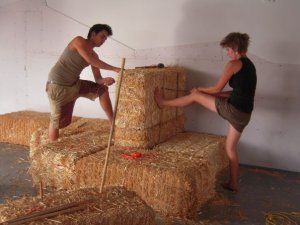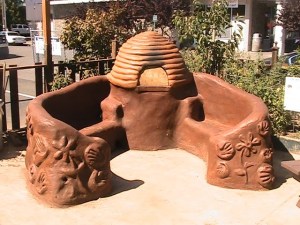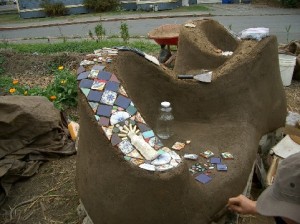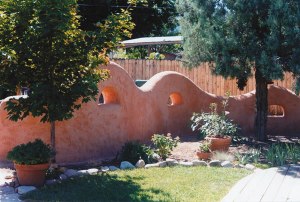This one’s for you Maryam….
I’m one of those people who have spent a significant portion of their lives thinking about how to live, trying to ascertain what ‘happiness’ is, if it’s even something one should aspire to attain, and whether a goal-driven existence is conducive to remaining present, aware, and appreciative of what is.
For years, the conundrum presented by the role of time in shaping not just our experience of life, but how we orient ourselves toward it, has confounded me. Despite my perennial inability to grasp the mathematics that describe them, the theorems of quantum physics fascinate me, especially those that deal with time as a dimension contributing to our particular perception and subsequent construction of reality. We are, in essence, three-dimensional beings who conceptualize time as a separate force that moves us from point A to point B, even though quantum physics has shown us, time and time again (yes, pun intended,) that such is not the case and that time is merely another aspect of space. At the speed of light, the “flow” of time is arrested; one reaches the continuous, undifferentiated present. Nirvana, some might say.
All my life I have experienced moments – sometimes weeks and months – of existential panic: what am I doing, where am I headed, what is the purpose of my life? Am I applying myself diligently to becoming the best I can be? Should I be working harder, giving larger, eating better, exercising more, saving money for a rainy day, fretting about my health, perambulating the globe to see every little thing I can see? I remember, clearly, a definitive demarcation, a tipping point that shifted my internal monologue irrevocably: the moment I knew I was pregnant and heretofore responsible for another human life, my own interests and predilections were summarily shelved. Raising a child, to the best of my abilities (and that did ebb and flow throughout the years) became the plot of the narrative running through my head. I fall for this man because of his huge heart that embraces both me and my daughter; we move here because of the superior school system and safe neighborhoods; I take this job because the hours are conducive to child care; I pursue a graduate degree and further promotions to provide ballet lessons, cheerleading camp, soccer uniforms, ski vacations and chauffeured birthday trips to Disneyland; we create a decades-long routine of unwavering predictability, weather marital storms and abusive bosses, watch our waistlines expand and our alcohol consumption increase; celebrate milestones and mourn the passing of our own youthful energy and exuberance – all to realize the “goal” of raising a child.
Still, there would be nights, usually after a bottle of wine and a desultory attempt to distract myself with a novel, when I would lie staring at the four walls pressing in on me and my heart would begin to flutter, my pores would emit a sheen of cold sweat, and my breath would go in but not out of my chest. That rising panic, the sense that my life was infinitesimally small, that I would live and die in such an incredibly insignificant, flat, colorless and static space, that all the flagrant wanderlust and burning curiosity of my youth had fizzled out and come to nothing – eventually, these crescendo-ing concerns could be countered and soothed by reciting the mantra of parents the world over: I’m doing all this for him/her/them.
Of course, I know now (and probably knew even then, but couldn’t acknowledge it) that this was a just a storyline, a plausible justification for having lost my impetus for adventure and becoming averse to risk, for staying in a stultifying situation that oftentimes did not excite or delight me but provided steady progress toward commonly recognized and respected aspirations. And it did work, remarkably well, actually. We raised a mentally healthy, relatively well-adjusted and emotionally secure human being. It stopped working, however, once she fledged and left me squatting in the abandoned nest, fat and featherless, confronting a wide-open sky that suddenly terrified me in its boundlessness. It is dramatically fitting, I suppose, that it was the baby bird who called it: when I floated the idea of joining Peace Corps, of making a leap of faith into the prevailing winds, she retorted “Well, of course – what in the heck is keeping you here?”
I worried, during the final months of my service, that the existential panic might find its way back to me once I landed stateside. It had been effectively silenced in Moldova by the dramatic arc of overseas service; I had left my country, my family and friends, my language and culture and geography, all that was familiar and routine, to embark on a voluntary adventure that was socially worthy and required a long-term, steadfast commitment. Peace Corps was my new plot, the next volume in the story of my life. It was exciting and challenging and provided a plausible explanation for abandoning an unrewarding job search and depressed economic forecast. I was morally “excused” from any existential fretting for the next three years. It was glorious. Even though, sometime during my second year as a volunteer, I did acknowledge – honestly and without trying to color it differently – that this path I had chosen was just another story, a way of living harmoniously with the circumstances life had thrown at me.
Coming home, I was very conscious of the need to find a new story. My husband had relocated to Ohio – close to his family but far from mine – and I had no clear job prospects, nor any burning desire to have one. I knew my own tendencies, though: I would find some hypothetical timeline or yardstick marked by cultural-, demographic and/or gender-specific goals and then begin reactively taking my measurement against it. If I found myself lagging I would feel like shit about myself for a little (or a long) while and then find the least-stressful and most convenient way to prop myself up. Meanwhile, I would be projecting into a future when I would be decades older yet still alive and healthy and the country and the economy would still look the same and the money I had diligently earned and saved would be sufficient to allow me to live a worry-free existence. Or…I could just stop worrying. Stop measuring myself. Take my eyes off the road ahead and look around me. I could write myself a different story. Volume three. (I AM a multivolume set.)
I admit, I have been waiting for an existential panic attack like one waits for the other shoe. A bad thing happened to me: I lost my job. Then another bad thing happened: my husband lost his job. We were unemployed together for a year; he experienced additional months after I escaped to Moldova. Now I am back, still unemployed and likely to remain so for the unforeseeable future. What should I tell myself? That I need to climb back on the tired horse I’ve already ridden? Adopt the same plotline I had before? (But wait a minute – no child to blame it on…)
I’ve begun to realize that the story is absolutely mine to narrate. I can add in somber music and stormy clouds, a cast of indifferent characters, or a little wizard behind a curtain. I can pitch it as a comedy, a drama, or a cautionary tale. Before, I was a white, middle-class, educated, professionally employed, middle-aged parent who’d gone thick around the middle and a bit dull in the head but had attained the appropriate markers to deem myself a success. Even though I was virtually indistinguishable from so many others around me, I was comfortable that way. Until I wasn’t. Then, through a series of (what I now deem) fortunate circumstances I began to see the outline of a different narrative, another means of interpreting and integrating my circumstances. I could make up my own markers. (I think that’s one of the beautiful revelations of aging: one begins to see through the pre-ordained prescripts of society for what they are: a means of ensuring that a diverse, over-large population can live in close proximity without killing each other while stoking a centralized economy.) But as long as I continue to play by the meta-rules – don’t lie, cheat, steal, hurt, or murder people – I am not required to mindlessly adopt the values or life trajectory that a 21st century, capitalist, technologically-oriented, Western society proscribed for me in order to measure my own worth or the satisfaction I take from my experience. I am my own narrator, the arbiter of how my story is told.
In support of my expressed wish to further practice the craft of writing, my husband once presented me with a marvelous little book called Exercises in Style, by Raymond Queneau. In it, he tells the same innocuous tale – of a crowded bus at midday where one man accuses another of jostling him and subsequently moves to a different seat – ninety-nine different ways, employing, amongst a host of widely varying styles and interpretations, the sonnet and the alexandrine, a Cockney flair, a rhyming slang, pig Latin, an interrogative punch, and permutations by groups of 5, 6, 7 and 8 letters. It is a fascinating display of talent and a perfect illustration of how one seemingly insignificant episode can be cast in distinct molds that change one’s perception of the material.
I used to see this with the kids in foster care: the measure of their resiliency was often demonstrated by the nature of their narrative, what they told themselves about how they ended up where they were. Mostly, there were two or three variations on a victim ideology and these were generally the kids who were depressed, furious, or numb. But there were a notable few who took preternatural hold of their own script, who refused to adopt or fall back on the patterns of behavior that being abused, neglected, emotionally flayed and love starved typically generated. For whatever reason, they were exceptions to the rule. They captained their own ships; even though they did not sail their chosen seas, they decided when to hoist the sails, batten down the hatches, heave ballast, or correct their course. One definitely had the sense that they were in a position to both combat severe weather and soak up sunny skies. I admired them greatly and took courage from their buoyancy.
Currently, I have cast myself in the role of peripatetic celebrant, finding reasons to recognize, honor, and nurture my body, family, friends, skills, and curiosity. I’m not sure of the specific soundtrack yet, but know it has a lot of bass drums, trilling violins and maybe an accordion or two. I haven’t written any bad guys into the plot: perhaps I just haven’t reached that chapter yet or maybe this particular volume won’t call for them. But if some dramatic, unanticipated plot twist should occur and I find my current circumstances profoundly altered, I trust that – having owned and honed this remarkable storytelling ability that all of us time-driven beings have been gifted – I will continue to write my own lines and guide the development of my character.
I still ponder the nature of time and how it propels us seemingly forward but actually just enlarges our circumference, allowing us to take in and incorporate even more diverse aspects of experiential space-time. In occasional flights of existential fantasy, I sometimes extrapolate this to what the other side of life might be like: time-warp velocity to reach the speed of light when the point A to point B narrative is experienced in its totality and there is no distance between the moments and life becomes the iridescent, fabulous coalition of melded pointillist interpretations, kind of like those celebrity portraits comprised of hundreds of separate photos of the same person. When the “I” that is me and the “I” that is you are realized, finally, to be stories told from kaleidoscoping points of view by an unimaginably creative and powerful pulsing of possibility, in and out, in and out.
So many stories to be told. It’s good to be a writer.
